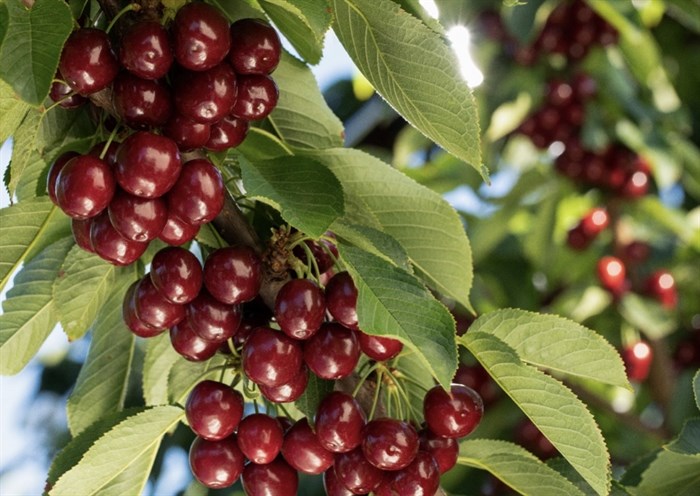B.C. cherry growers celebrate as access granted to lucrative South Korean market

Canadian cherries have been granted market access to South Korea by Canada's market access secretariat, according to the B.C. Cherry Association.
It took seven years of work by the Canadian Food Inspection Agency and the cherry association to open the doors to what is expected to be a strong and lucrative market.
The organizations provided Korea’s officials with exhaustive information on Canadian cherry growing and packaging practices and negotiated an agreement, according to a cherry association media release.
The South Korean market is expected to be a strong one because of the health-conscious middle class love tasty and nutritious treats, the association said, adding there's still a bit more work to be done.
READ MORE: The good news and bad news about this year's Okanagan cherries
A pilot program will pave the way for full access in 2023, when the program should open up to the entire Canadian cherry industry.
This summer Kelowna companies Northern Cherries Inc. and Jealous Fruits Ltd. and their packing facilities have been carrying out pest monitoring procedures and detailed reports to meet the requirements of the new agreement.
The growers are sending the first trial shipments this month so the South Korean and Canadian governments can assess and fine tune procedures if they need to, the association said.
Cherry association president Sukhpaul Bal praised the two businesses and the association’s partners in the federal government.
“This announcement and this year’s pilot program would not have happened without the efforts of these people,” he said in the release. “The growers carried out all sorts of extra work with no guarantee that they could ship their fruit this year.
"The Canadian Food Inspection Agency staff working on this portfolio went above and beyond to ensure we met all the requirements for market access, with their people working evenings and weekends to ensure everything went smoothly.”
B.C. cherries are considered the best in the world because they grow larger when the trees experience a sustained winter dormant period, and are sweeter and more flavourful with the longer sun-drenched days at higher latitudes.
The B.C. Interior valleys, where 95% of Canadian sweet cherries are grown, experience warm dry summers with low pest and disease levels, resulting in cherries that are in demand worldwide, the association said.
B.C. exported almost $79 million in cherries in 2021, and with expanding cherry acreage as well as a strong crop, growers anticipate that 2022 figures will fall in the $90 million range.
To contact a reporter for this story, email Shannon Ainslie or call 250-819-6089 or email the editor. You can also submit photos, videos or news tips to the newsroom and be entered to win a monthly prize draw.
We welcome your comments and opinions on our stories but play nice. We won't censor or delete comments unless they contain off-topic statements or links, unnecessary vulgarity, false facts, spam or obviously fake profiles. If you have any concerns about what you see in comments, email the editor in the link above.


